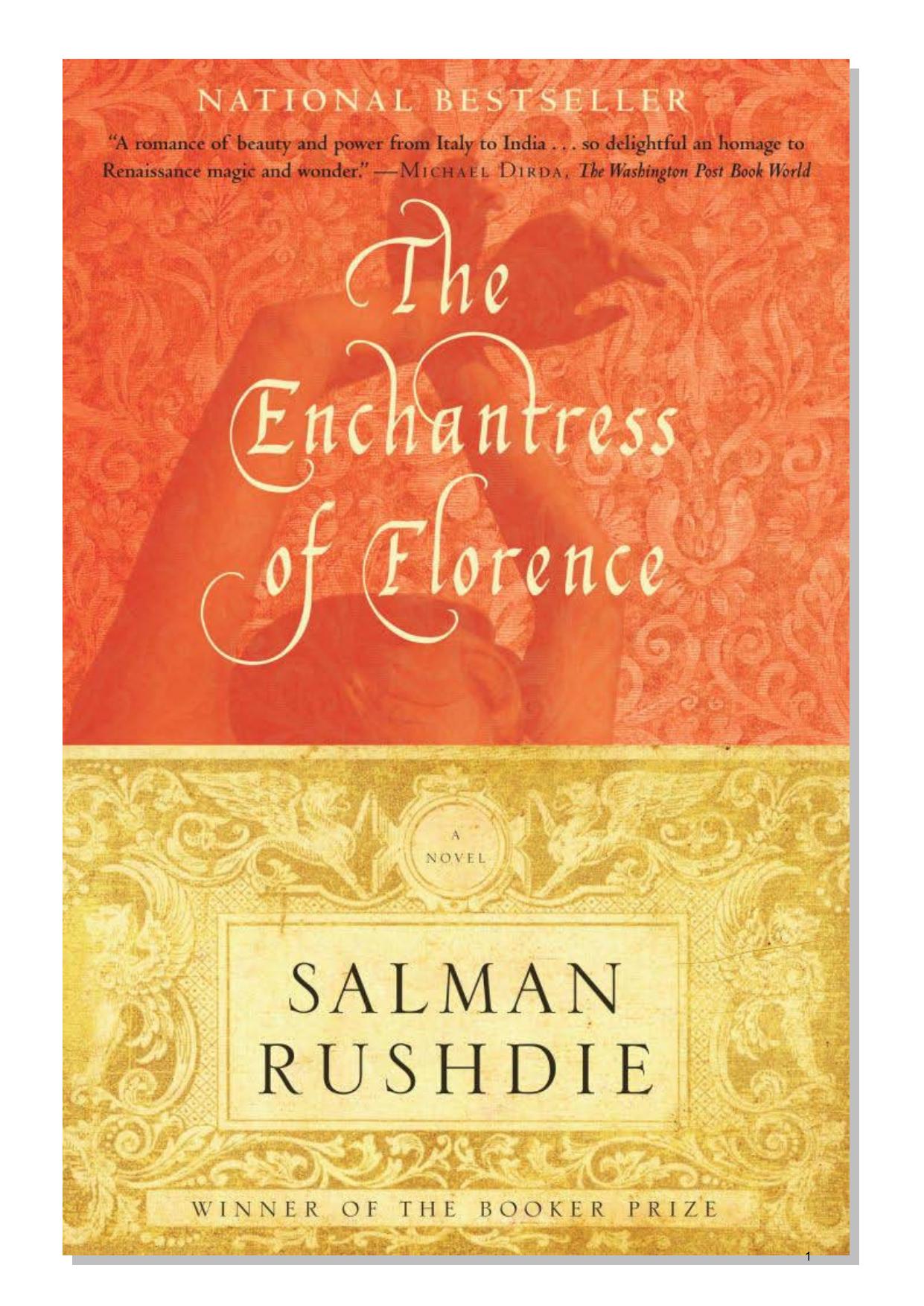
The Enchantress of Florence
A Novel
کتاب های مرتبط
- اطلاعات
- نقد و بررسی
- دیدگاه کاربران
نقد و بررسی

Starred review from March 24, 2008
Renaissance Florence’s artistic zenith and Mughal India’s cultural summit—reached the following century, at Emperor Akbar’s court in Sikri—are the twin beacons of Rushdie’s ingenious latest, a dense but sparkling return to form. The connecting link between the two cities and epochs is the magically beautiful “hidden princess,” Qara Köz, so gorgeous that her uncovered face makes battle-hardened warriors drop to their knees. Her story underlies the book’s circuitous journey.
A mysterious yellow-haired man in a multicolored coat steps off a rented bullock cart and walks into 16th-century Sikri: he speaks excellent Persian, has a stock of conjurer’s tricks and claims to be Akbar’s uncle. He carries with him a letter from Queen Elizabeth I, which he translates for Akbar with vast incorrectness. But it is the story of Akbar’s great-aunt, Qara Köz, that the man (her putative son) has come to the court to tell. The tale dates to the time of Akbar’s grandfather, Babar (Qara Köz’s brother), and it involves her relationship with the Persian Shah. In the Shah’s employ is Janissary general Nino Argalia, an Italian convert to Islam, whose own story takes the narrative to Renaissance Florence.
Rushdie eventually presents an extended portrait of Florence through the eyes of Niccolò Machiavelli and Ago Vespucci, cousin of the more famous Amerigo. Rushdie’s portrayal of Florence pales in comparison with his depiction of Mughal court society, but it brings Rushdie to his real fascination here: the multitudinous, capillary connections between East and West, a secret history of interchanges that’s disguised by standard histories in which West “discovers” East.
Along the novel’s roundabout way, Qara Köz does seem more alive as a sexual obsession in the tales swapped by various men than as her own person. Genial Akbar, however, emerges as the most fascinating character in the book. Chuang Tzu tells of a man who dreams of being a butterfly and, on waking up, wonders whether he is now a butterfly dreaming he is a man. In Rushdie’s version of the West and East, the two cultures take on a similar blended polarity in Akbar as he listens to the tales. Each culture becomes the dream of the other.

Starred review from May 15, 2008
Much like Rushdie himself, the mysterious yellow-haired stranger we meet in the opening pages of this magical and haunting new novel is a teller of tales, "driven out of his door by stories of wonder." This young man, straddling the worlds of 16th-century Florence and Mughal India much as he stands astride a bullock cart and enters the emperor's domain in Sikri, is driven to this new land with a story that can either make him his fortune or cost him his life. Appearing before the Emperor Akbar, the young man presents himself as an emissary of Queen Elizabeth I. When Akbar challenges his identity, the storyteller begins to weave the dangerous tale of Qara Köz, the enchantress of Florence, whom he claims is his mother. Parading through this tale of two worlds are Niccolò Machiavelli and Amerigo Vespucci's cousin, Ago. Köz's power, like the power of many beautiful women in Rushdie's novels, is often realized through her relationships with the men in her life, so her story often becomes one-dimensional. Nevertheless, Rushdie's lushly evocative creation of the mysteries and intrigues of a medieval world and his enchanting and seductive stories captivate and transport us in ways reminiscent of his early novels like "Midnight's Children" and "The Satanic Verses". Highly recommended.Henry Carrigan, Evanston, IL
Copyright 2008 Library Journal, LLC Used with permission.

Starred review from April 15, 2008
Rushdie spins a tall tale based on the hoary premise of a stranger coming to town. Town in this instance is the capital city of the Mogul Empire of Akbar the GreatRushdie chooses well in writing a historical novel centered on one of the most fascinating rulers in the history of East Asiaand the stranger is a Florentine conjurer who has come all the way from Italy to seek an audience with the king of kings, for he has astory fit only for theemperors ears. The stranger, attractive on many levelsHe has picked up languages the way most sailors picked up diseases; languages were his gonorrhea, his syphilis, his scurvy, his ague, his plagueingratiates himself into court life, having a keen admirer in the emperor himself. Copious detail about the history of theMoguland OttomanEmpires leads to reader edification but, at the same time, can lead to readerimpatience; nevertheless, as always, Rushdie furnishes the world of his fiction inlush upholstery. He is uninterested in keeping his narrative tightly tethered to reality; the magical level it carries so robustly imbues it with the atmosphere of a fable. Its an elaborate, complicatedread, intensely reflective of the authors worldliness, intelligence, and partiality tothe fantastical. This novel isbest sipped, because its a heady brew, but it is also entertainment of the highest literary order.(Reprinted with permission of Booklist, copyright 2008, American Library Association.)

























دیدگاه کاربران